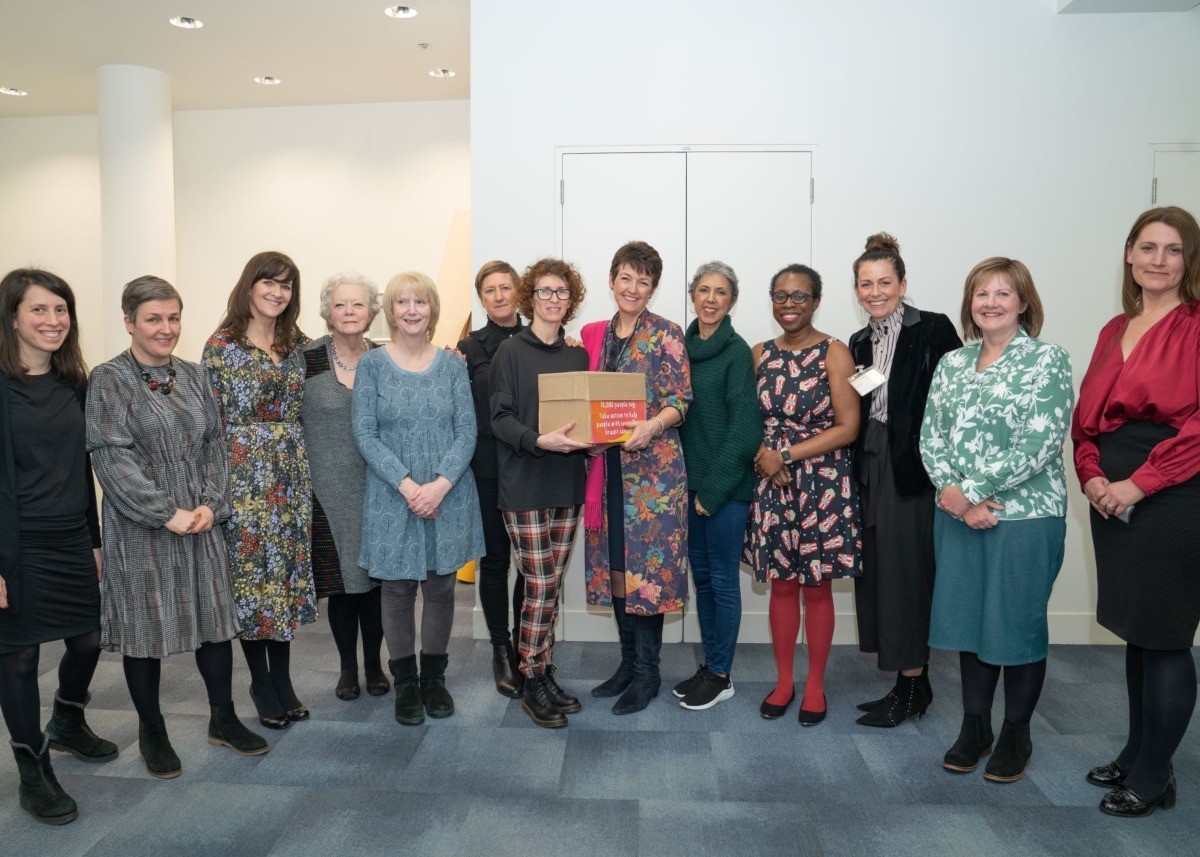We’re committed to improving treatment, care and services for people living with secondary breast cancer, which is why it’s a central part of our new strategy.
We’re committed to improving treatment, care and services for people living with secondary breast cancer, which is why it’s a central part of our new strategy.

The impact of secondary breast cancer
For people living with secondary breast cancer, the impact can be devastating. Secondary breast cancer can be treated but cannot be cured.
There are an estimated 35,000 people living with incurable secondary breast cancer in the UK. In around 5% of women, breast cancer has already spread to another part of the body by the time it is diagnosed. Around 11,500 women and 85 men die each year from breast cancer, the majority from secondary breast cancer.
While there has been progress in recent years, so much more needs to be done to improve diagnosis, treatment and support for people living with secondary breast cancer. We’re committed to continue pushing for these changes.
Campaigning for change
People living with secondary breast cancer tell us that they feel forgotten, invisible and as though they don’t count. To address this, we have worked alongside our passionate patient advocates to shine a light on the experiences and challenges faced by people living with secondary breast cancer, and to demand better.
Together we have made progress across key areas, including data collection, diagnosis and access to treatments.
We know that every person living with secondary breast cancer has a unique experience – yet these experiences are not often acknowledged. That’s why we’ve worked with NHS England to secure changes to the National Cancer Patient Experience Survey. These changes will better capture the experiences of people with secondary breast cancer.
Also, after years of campaigning with our amazing supporters, NHS England announced it would fund the first ever National Secondary Breast Cancer Audit in May 2021. The audit means we will finally begin to understand how many people are living with secondary breast cancer and their experience. We are pleased to share that the Welsh Government has also recently announced it will join NHS England and participate in this audit. This brings hope of a brighter future for those diagnosed with the disease across England and Wales.
We’ve also developed resources to help patients and healthcare professionals recognise the signs and symptoms of breast cancer recurrence and secondary breast cancer as many people experience avoidable delays in diagnosis.
In addition, we’ve worked with Gateway C – an online cancer education platform – to develop a new module for GPs in England so they can effectively and confidently recognise the signs and symptoms of secondary breast cancer.
Finally, we know how vital new and effective treatments are, which is why we are involved in new breast cancer drug submissions to the National Institute for Health and Care Excellence (NICE) and the Scottish Medicines Consortium (SMC). This year we have worked to ensure two new treatments are available for use on the NHS – abemaciclib with fulvestrant is available across the UK and trastuzumab deruxtecan is available in England and Wales. We are now working closely with the SMC to make sure patients in Scotland can access trastuzumab deruxtecan.
There’s no time to waste
While this progress is very welcome, there is still so much to do to make sure people with secondary breast cancer receive the support and treatment they deserve.
Currently, we’re campaigning to ensure people living with triple negative secondary breast cancer can access a promising new drug called Trodelvy as soon as possible. People with triple negative secondary breast cancer have limited treatment options and Trodelvy could give them the hope of more time.
However, they may face an agonising wait until it becomes available on the NHS. While the drug has received its licence for use, a decision on whether it will be made available on the NHS is not expected until next year – meaning a delay of many months before women can access it.
We’ve been calling on Gilead, who own Trodelvy, to reach an agreement with NHS England to provide the drug free of charge to all eligible women until it is approved for routine use.
We won’t stop until everyone with secondary breast cancer is recognised, receives a prompt diagnosis, has access to the treatments they need and is supported by a clinical nurse specialist.
We are so proud of what we've achieved so far, but we’re only able to do this alongside our incredible supporters taking action to create change. Join us and help make a real difference.